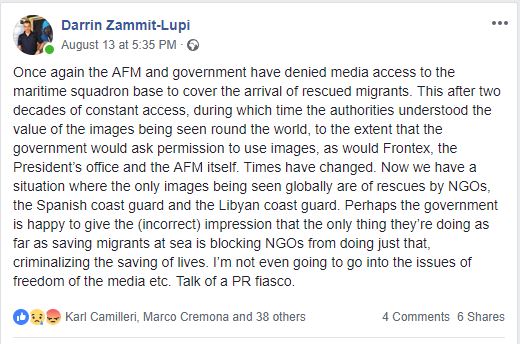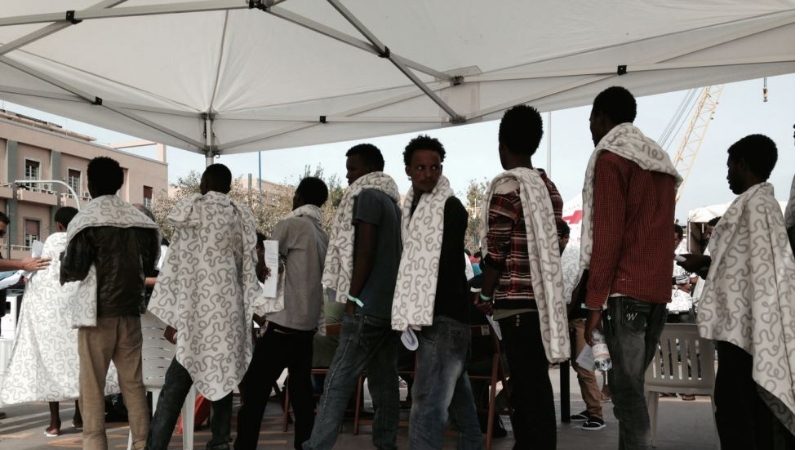Governments are using threats, intimidation, arrest and other means to obstruct media coverage of refugees, which Reporters Without Borders described as the “21st century’s biggest humanitarian crisis”.
By intimidating journalists who cover the stories of refugees, some governments are not only seeking to “conceal their violations of international humanitarian law but also to ensure that their questionable political decisions are ignored or can even be denied outright”, RSF said in a statement.
This was taking place through prosecution, denial of permits, rejection of interview requests, seizure of equipment and deportation, it said.
The NGO highlighted various examples of government hindrance in media coverage migrants Europe and around the world.
Malta was not mentioned in the report, however, the Maltese media were denied access to document the arrival of rescued migrants in two instances at the Armed Forces of Malta naval base. They were invited down to the base but told to stay outside the main gate, from where nothing was visible, journalists said.
The incident was also listed in Mapping Media Freedom, which monitors and gathers information about threats, limitations to journalists working in EU and surrounding countries.


In the Alpes-Maritimes region of southeastern France that borders Italy, reporters covering migration issues have to deal with a “legal form of intimidation” as the police constantly them from filming or photograph police and refugees on the highway.
Interviews by La Repubblica journalist Alessandro Puglia “with migrants describing how they were treated like animals,” at a centre in Italy led to him being prosecuted for defamation and being threatened on social networks.
US reporter Spencer Wolff was arrested in 2017 when filming a documentary for The Guardian about residents in the Roya valley near the French and Italian border who help migrants. He spent 24 hours in custody and was interviewed by the same officers who he had spoken to for the documentary.
Behind the official goal of breaking up migrant-smuggler networks, “there is clearly a desire to obstruct our reporting on the ground,” freelance journalist Raphaël Krafft said.
“We are also blocked by municipal authorities and different State agencies that don’t respond to our requests.” In both France and Italy, requests for interviews with officials directly involved in migrant issues or authorising access to refugee camps were never successful.
In Libya, journalists are terrified when they go to migrant detention centres, which have been controlled by Libya’s militias since 2014.
In 2012, RSF drew attention to the fact that reporters were being denied access to migrant detention centres almost everywhere in Europe.
“Our societies cannot dispense with media coverage of migration crises, which are now at the centre of the public debate in Europe and elsewhere,” RSF secretary-general Christophe Deloire said.
Covering this story cannot be regarded as a crime. “Governments have a duty and responsibility to not obstruct journalism on security grounds and not promote a rosy view of an often tragic reality.”
In Libya, journalists are terrified when they go to migrant detention centres, which have been controlled by Libya’s militias since 2014, RSF said.
After going through red tape for the necessary permits, they arrive at a centre where “the reality of the conditions inflicted on migrants is clearly being disguised” and where they have to “film staged scenes at the militiamen’s behest,” RSF was told by a Libyan journalist, who requested anonymity for safety reasons.
By intimidating journalists who cover the refugee story, some governments are not only seeking to conceal their violations of international humanitarian law but also to ensure that their questionable political decisions are ignored or can even be denied outright, RSF said.













